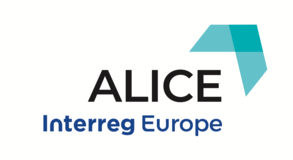On 23 January 2020 in Tourcoing, the Cinema and Audiovisual Productions Fund of the Hauts-de-France region Pictanovo, conducted its first stakeholders’ meeting with producers, studios, distributors and independent workers from the animation sector. The main objectives of the meeting were to get the participants to endorse ALICE as a project, and to collectively assess the state of co-production in the region.
Despite a general consensus that animation content travels well, discussions brought to light the wide variety of situations and experiences among the participants: while major studios and producers tend to regard co-production as a challenging but necessary tool for developing large projects for international audiences, most smaller-scale companies have little or no co-production experience. The main challenges/ barriers to entry to inter-country collaboration appeared to be the differences in funding and legal systems within Europe, as well as in studio capacities. Priority should be given to encouraging connections and information sharing between animation players of different scales and areas. A database containing information about public systems and labour rights in Europe could be developed, and ideally coupled with inclusive international events fostering dialogue between companies of all sizes and capacities.
Public support was another important theme covered in the session. The participants expressed concern about the recent announcement of a € 5 million cut in the budget for the National Center of Cinema and Animated Picture, and the closure of the public TV channel, France 4. They all agreed that broadcasters and distributors should be involved in discussions regarding system changes.
As the largest European producer of animation and third largest in the world, after the US and Japan, France is very attractive. During the meeting, the stakeholders recognized the value of international mobility, which they see as benefiting French skills and talent. They suggested the creation of programs to help talent and companies “go European” by promoting student exchanges, supporting animation companies in the creation and implementation of international recruitment plans, and educating studios about the legal status of freelance workers across Europe.
This first meeting showed the stakeholders’ willingness to foster inclusive dialogue between very diverse players, public funds and distributors, to promote international exchanges, and to adapt local policies to the reality of the European market. ALICE’s partners from Wallonia in Belgium, Catalonia in Spain, the Puglia region in Italy, the Rzeszow region in Poland, and the Slovak Republic are already taking action within their own local sectors. They will focus on specific actions over the next three years to cultivate a spirit of cooperation and to encourage a united development of the local and pan-European industries.




